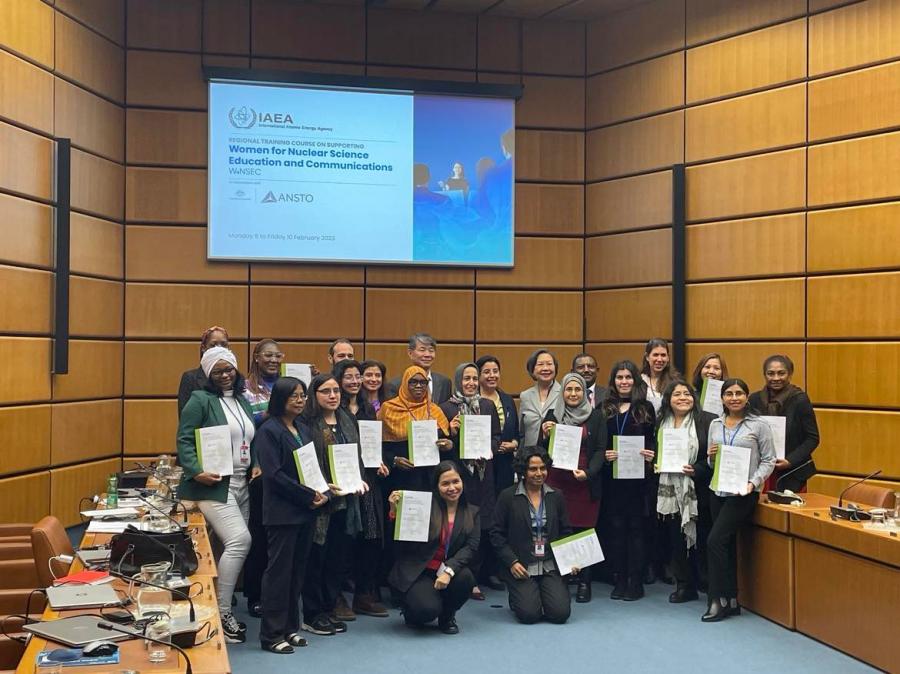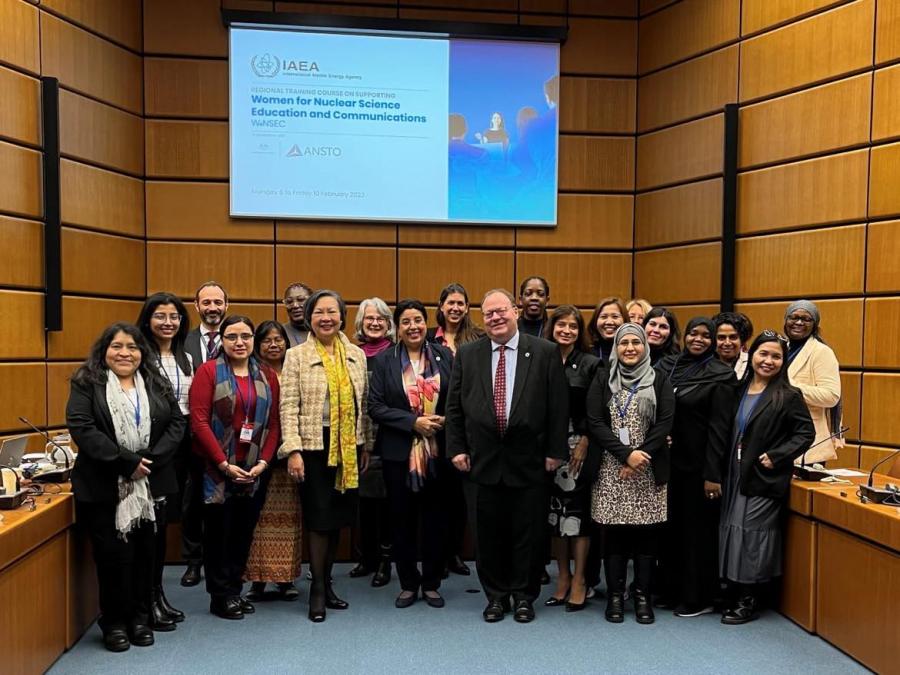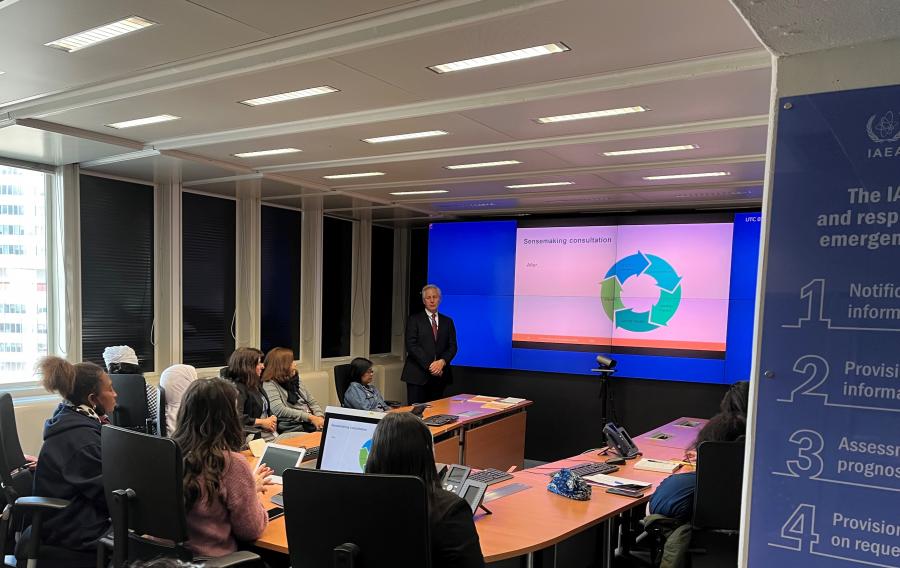This week women in science from 16 countries came together like never before. Inspiring women, young and mature, were the first to complete the Women for Nuclear Science Education and Communication (W4NSEC) program that is designed to support women who are wanting to improve their education and communication skills in nuclear science.

Since the program launched in 2020, the women have connected online to receive support and guidance from across the globe to develop programs for their own country that are helping to support education and outreach of nuclear science and technology and supporting the development of young people and women into STEM careers.
Importantly, the program is helping these women to also find their own voice and to elevate their own careers and programs to new heights.
Director for Technical Cooperation Asia Pacific for the IAEA, Jane Gerado-Abaya said, "The IAEA launched the W4NSEC program, with the support of ANSTO in Australia. The goal was to support education and capacity building in nuclear science and technology for young women in developing countries. The aspirations that drive this course are consistent with the IAEA's efforts to build global understanding of the usefulness of nuclear science and technology in meeting the daily needs of everyone.
The women who have successfully completed this inaugural program came together for the first time to meet in person in Vienna this week and celebrate their achievements and continue to learn.

Ambassador Richard Sadleir said, "Australia, through ANSTO, is delighted to be partnering with the IAEA on this important training program to support women in STEM from around the world in further developing their skills in education and communication.
"Australia has been an active supporter of initiatives in Vienna to promote the participation and leadership of women in nuclear science and technology, including through our co-founding of the Group of Friends for Women in Nuclear.
"I would like to also highlight how fitting it is that this course aligns with the International Day of Women and Girls in Science. This day serves to promote the full and equal access to, and participation in, science for women and girls," he said.
The W4NSEC course provided women educators and communicators with support to develop their education and communication skills in providing impartial information to the public on how nuclear science and technology is helping countries to achieve the UN Sustainable Development Goals, and to benefit humankind.
Deputy Director General and Head of the Department of Technical Cooperation, Mr Hua Lui officiated the graduation ceremony and said, "I am delighted that we were able to accommodate these women from 16 countries in Africa, Asia and the Pacific, Europe and Central Asia, and Latin America and the Caribbean. I am very proud to see this initiative as a complete success and an example of what partnerships and cooperation between the International Atomic Energy Agency, Departments of Nuclear Sciences and Applications and Technical Cooperation, and ANSTO can achieve."

Deputy Director General and Head of the Department of Nuclear Sciences and Applications, Najat Mokhtar, said, "The overall design of 'Women for Nuclear Science Education and Communication' was to empower women university science teachers and science communication professionals to deliver impartial teaching and unbiased information about how nuclear science and technology is helping to achieve the UN Sustainable Development Goals for the benefit of humankind and the environment, spanning areas as diverse as energy, human health, food production, water management and environmental protection.
Director for NAPC IAEA, Melissa Denecke said, "We can't achieve the Strategic Development Goals without closing the gender gap, particularly in the field of science and technology. Gender parity is crucial in creating a stronger, more equal and more diverse workforce that can drive development and sustainability in the nuclear field. These women are terrific role models for the women and girls around the world and I wish them every success for the future."






